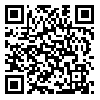BibTeX | RIS | EndNote | Medlars | ProCite | Reference Manager | RefWorks
Send citation to:
URL: http://rjms.iums.ac.ir/article-1-904-en.html
2- Imam Khomeini Hospital. Zanjan, Iran.
Background & Aim: Although shivering is one of the consequences of perioperative hypothermia and is rarely considered as the most serious complication, it occurs frequently and remains poorly understood. While cold-induced shivering has an obvious etiology, post-general anesthetic shivering is attributed to numerous causes. Until now, dexamethasone has been used for the treatment of post-general anesthetic shivering. The objective of the present study is to evaluate the effects of intravenous dexamethasone on the prevention of post-general anesthetic shivering. Patients and Method: 80 patients who were candidates for elective knee arthroscopic surgery were selected and randomly divided into case and control groups. Immediately after the induction stage of anesthesia, which was the same for both groups, 0.15 mg/kg of intravenous dexamethasone was administered to the case group. The same amount of distilled water was intravenously administered as placebo to the control group. The temperature of the operating room was kept between 20 and 25 degrees centigrade. When the operation ended, shivering score was measured and recorded by a trained nurse in the recovery room. The patients and the nurse were blind to case and control allocation of the patients. Results: The mean age of the patients, the temperature difference between operating room and patient's body, and shivering score were 27.34 years, 9.52 degrees centigrade and 1.76 respectively. Both groups were matched for age, weight, operating room and patient's body temperature difference, surgery time, recovery time, and the amount of administered fluids. There were statistically significant differences in score and incidence of shivering between the two groups. A statistically significant correlation was also found between administered fluid volume and shivering score in both groups. Conclusion: The obtained results revealed that intravenous dexamethasone is effective in the prevention of post-general anesthetic shivering. This confirms previous studies and it seems that this study supports central mechanism of post-general anesthetic shivering rather than peripheral one.





